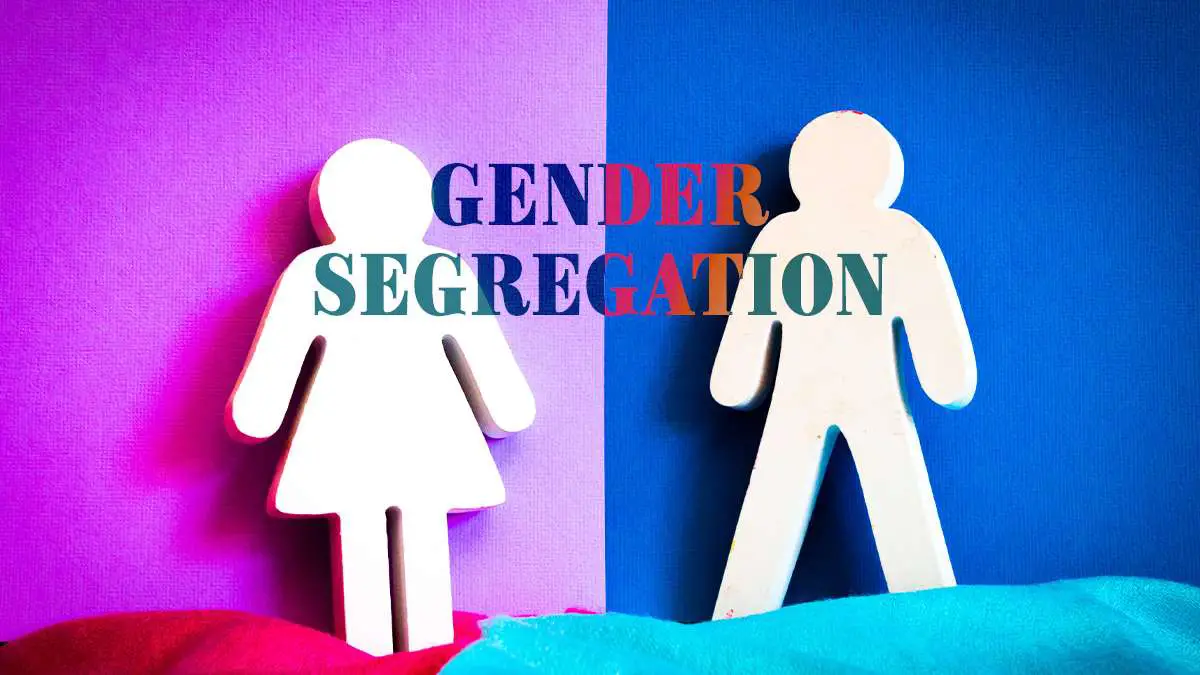The K-12 education field experiences subtle gender segregation. According to the National Center for Education Statistics, experts found that about 89% of public elementary school teachers were female in the 2017 and 2018 school year. Some of the consequences of gender segregation in education show up in legislation. House Bill 1134 was an unrealistic bill that would have severely affected the very gendered job of teaching.
Defining Gender Segregation in Jobs
Gender segregation in jobs occurs when certain jobs are mainly feminine or masculine. Other than education, this can also be seen in jobs like dental hygienists (mainly female) or truck drivers (mainly male). Lisa Wade, a famous sociologist, addresses this concept in a very understandable way in Gender: Ideas Interactions, and Institutions. Some try to explain why gender segregation occurs, but it is more important to know that gender segregation exists in the first place.
Stereotypes about women play a big role in the hiring process for bosses and the job-searching process for teachers. A stereotype is an oversimplified idea about a category of person. For example, many stereotypes about women say they are caring, organized, beautiful, and quiet. They tend to look for and be hired in positions that highlight these traits.
Many jobs labeled of feminine require a lot of emotion work and care work. Wade also tackles these concepts in her textbook. Emotion work is what happens when a person needs to control their own emotions while also controlling someone else’s emotions. Teachers do this frequently when they keep a calm attitude while working with students and parents who may present intense emotions like excitedness, anger, sadness, and nervousness. Care work involves taking care, in-person, of someone or a group of people’s physical, emotional, or educational needs. Most jobs that are feminine and involve emotion work and care work are jobs that are not as valued. As a result, these kinds of jobs receive a lower amount of pay.
House Bill 1134
House bill 1134 was a proposed bill by the state of Indiana, but it was eventually killed by the senate. It would have required that teachers provide their lesson plans and materials before the school year starts. Legislators believed that parents should be able to have a clear understanding of what their child was learning and have access to the curriculum. Parents could opt their child out of certain things that would then require teachers to create different assignments. This bill would also require that teachers do not use materials in their class that would promote certain sexes, races, ethnicities, religions, colors, or national origins. People sometimes consider these concepts to be divisive.
Gender Segregation, Education, and House Bill 1134
If this bill were to have passed, this would have made teacher’s lives even more difficult. We ask a lot out of our educators already. We expect them to be able to create lesson plans that are fun/engaging, manage their classroom, differentiate instruction to the different kinds of learners, and provide thoughtful feedback to parents. They must do all of this while having a pleasant smile on their face because school is supposed to be magical place for children to learn.
Again, teaching is already a very gendered job. Unfortunately, this is where emotion work and care work really come into play. Care work jobs usually require less schooling compared to experience. These kinds of jobs are also not seen as difficult because “anyone can do them.” For this reason, people respect them less. Emotion work often goes unnoticed because it is not something we can always blatantly see. It can be difficult for some people to spot if emotion work is even happening.
Both care work and emotion work present themselves in teaching. Teachers have become good at hiding their emotions while taking care of their students’ needs and emotions. They are expected to be well-organized nurturers. Again, this is big reason why the amount of effort that they put into their classroom goes unnoticed.
While men can absolutely be teachers, women are more likely to be teachers. The reason for having the job does not matter as much as the fact that more women work in the education field. Combining the care work and emotion work make teaching a very feminine field. This is a possible explanation as to why the teaching profession is so devalued.
The proposed House Bill 1134 emphasizes the lack of respect that people have for teachers. A classroom is meant to flow with the learners. This means changing lesson plans to fit the needs of the students. This can depend on the pace at which students are learning, special learners’ needs, state standards, and even school events (drills, fun days, etc.). Some teachers make changes to the lesson plans they made the morning of. A plan that they made during the summer is, of course, going to change somewhat throughout the year.
The people on education boards and school districts are meant to be the ones that have a say in what the teachers must do to meet standards. Parents may voice their inputs to their school or district. It is not okay for parents to be able to pick and choose what exactly they want their children to learn in a teacher’s classroom. That is what private and home-school education is for. No other job allows for that amount of scrutiny and input from outsiders. Even in long-term projects such as bridge-building, experts like engineers or small committees are left to the evaluations; not every person who is planning on using that bridge.
Final Thoughts
The stereotypes of women influenced lawmakers’ decision heavily. This bill would have been incredibly difficult to execute. I am grateful that teachers, especially women, went against stereotypes and used their voice to shut this bill down. The gender segregation in teaching results in House Bill 1134 having gendered impacts as well.







